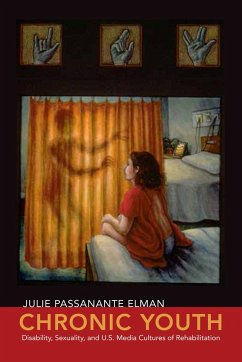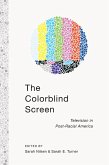"The teenager has often appeared in culture as an anxious figure, the repository for American dreams and worst nightmares, at once on the brink of success and imminent failure. Spotlighting the "troubled teen" as a site of pop cultural, medical, and governmental intervention, Chronic Youth traces the teenager as a figure through which broad threats to the normative order have been negotiated and contained. Examining television, popular novels, science journalism, new media, and public policy, Julie Passanante Elman shows how the teenager became a cultural touchstone for shifting notions of able-bodiedness, heteronormativity, and neoliberalism in the late twentieth century. By the late 1970s, media industries as well as policymakers began developing new problem-driven 'edutainment' prominently featuring narratives of disability--from the immunocompromised The Boy in the Plastic Bubble to ABC's After School Specials and teen sick-lit. Although this conjoining of disability and adolescence began as a storytelling convention, disability became much more than a metaphor as the process of medicalizing adolescence intensified by the 1990s, with parenting books containing neuro-scientific warnings about the incomplete and volatile "teen brain." Undertaking a cultural history of youth that combines disability, queer, feminist, and comparative media studies, Elman offers a provocative new account of how American cultural producers, policymakers, and medical professionals have mobilized discourses of disability to cast adolescence as a treatable "condition." By tracing the teen's uneven passage from postwar rebel to 21st century patient, Chronic Youth shows how teenagers became a lynchpin for a culture of perpetual rehabilitation and neoliberal governmentality"--
Hinweis: Dieser Artikel kann nur an eine deutsche Lieferadresse ausgeliefert werden.
Hinweis: Dieser Artikel kann nur an eine deutsche Lieferadresse ausgeliefert werden.








